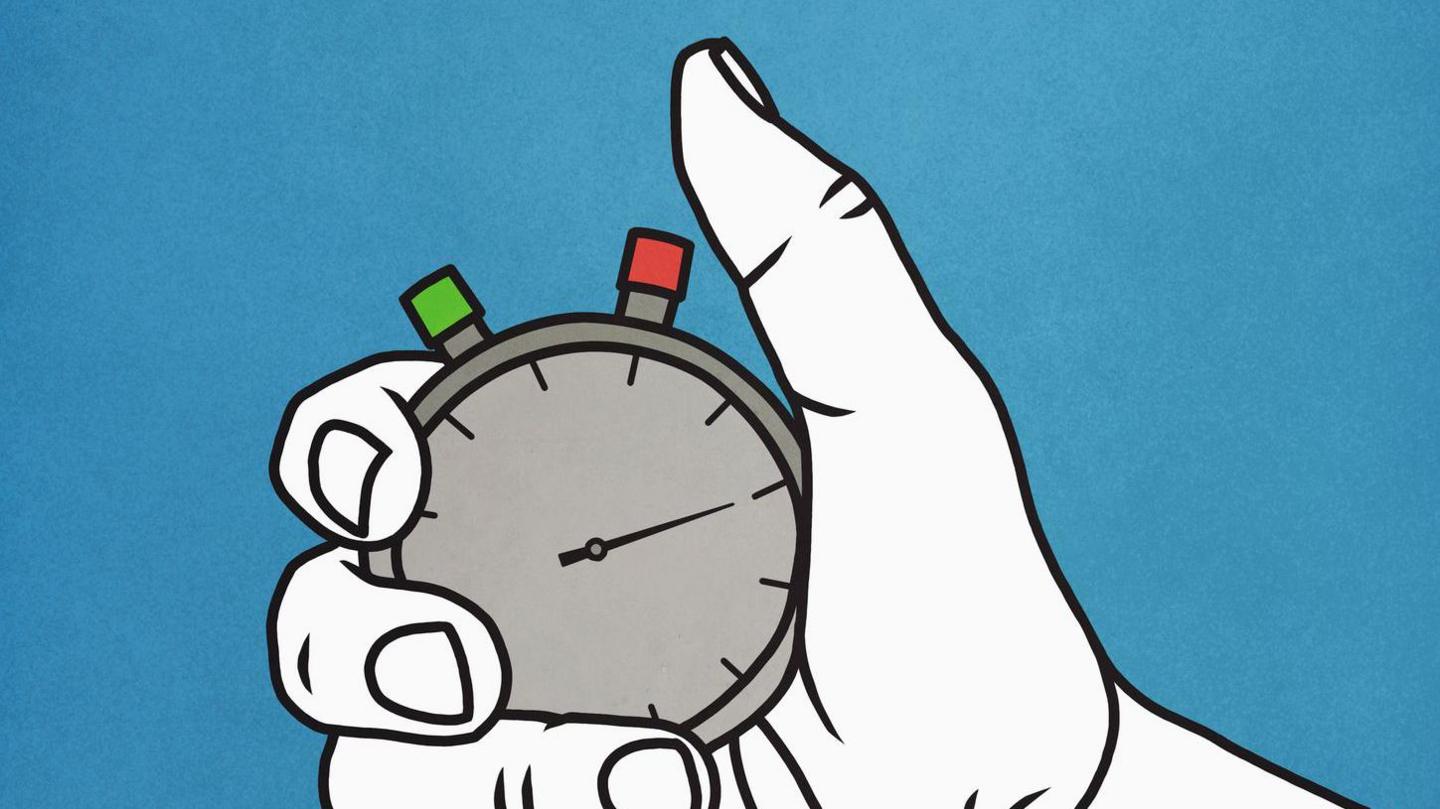Earth spinning faster makes today one of the shortest on record

22 July 2025 will be 1.34 milliseconds shorter than normal
- Published
If you are counting down to something exciting, then you might be happy to hear this news...
Today, Tuesday 22 July 2025, will be one of the shortest days on record, as Earth will complete its full rotation in slightly less time than usual.
But, don't get too excited, you probably won't notice the difference, as the day will be just 1.34 milliseconds less than the standard 24 hours.
So, what's going on? Read on to find more.
Was the shortest day ever recorded caused by an Earth wobble?
- Published4 August 2022
Why 2021 could be a shorter year than normal
- Published13 January 2021
Why does the Earth spin? Video, 00:01:05
- Published21 August 2019

Normally the Earth takes 24 hours to rotate fully on its axis
Normally, we think of the Earth taking 24 hours, or 86,400 seconds to rotate fully on its axis in a day.
However, this isn't an exact figure, as the speed of Earth's rotation depends on many factors, including the positions of the Sun and the Moon, and Earth's gravitational field.
Scientists have found that on average the Earth has been slowing down by about two milliseconds per century.
This means that 250 million years ago - when dinosaurs roamed the Earth - a day was shorter, at around 23 hours long.
Why does the Earth spin?
A big factor in the slowing down of the rotation over many centuries is due to the pull of the Moon.
The Moon affects our planet's spin through something known as tidal braking.
This is when the gravitational pull from the Moon causes our planet to bulge (expand) in places, and this slows the momentum of the Earth's rotation.
In this case the Moon acts almost like a handbrake slowing down the Earth's spin.

The International Earth Rotation and Reference Systems Service (IERS) constantly measures the length of our days
The International Earth Rotation and Reference Systems Service (IERS) is constantly measuring the length of our days to a high level of accuracy.
Scientists use atomic clocks to monitor Earth's rotation with millisecond precision, and have been keeping records since 1972.
Since 2020, Earth has repeatedly broken its own speed records.
The shortest day ever measured occurred on 5 July 2024, when Earth's rotation was completed 1.66 milliseconds faster than usual.
According to the IERS, earlier this month, 9 July, was the shortest day recorded this year, clocking in at 1.36 milliseconds less than 24 hours.
Whilst, today - 22 July - Earth is expected to complete its spin 1.34 milliseconds early, making it a close runner-up.
